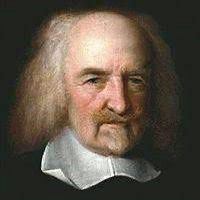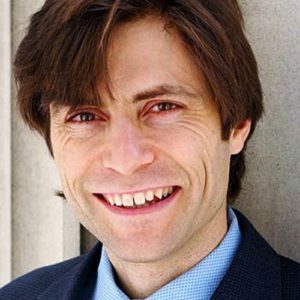Frequently Asked Questions
Where can I find the syllabus for Ethics for Engineers?
Posted on our Canvas site are sample syllabuses for the two versions of the course offered this fall. This site is accessible to all MIT students.
What are the different versions of the course?
We offer Regular and BE Focus versions of the course. The different versions meet separately. The requirements are similar, but they offer different case studies and to some extent different theoretical material. See the individual tabs above for further details.
Schedule for Spring 2026:
| Mondays 3-5 | Regular version | Prof. Lauffenburger, Dr. Kathryn Hansen |
| Tuesdays 3-5 | Bioengineering focus | Prof. Guarente, Dr. Peter Hansen |
| Wednesdays 3-5 | Regular Version | Dr. Peter Hansen |
| Wednesdays 7-9 | Regular Version | Dr. Peter Hansen |
Do the different course listings of Ethics for Engineers represent different courses? Do they meet together?
As noted above, the two versions of the course (Regular, and BE Focus) meet separately and study somewhat different material. However, we do not separate the different course listings (1.082, 2.900, 6.9320, 10.01, 16.676, and 20.005). All of these listings are for Ethics for Engineers, which is one course offered in two versions as indicated above. If you take the Regular version, you will likely have classmates who are registered through different departmental listings. The requirements are the same whichever course listing you register for, except that there is an additional requirement for 20.005. See the next two questions for details on that.
I see that 20.005 is 9 units, while the other listings (1.082, 2.900, 6.9320, 10.01, and 16.676) are only 6 units. How does this work?
Whichever way you register for Ethics for Engineers, the requirements of the basic 6-unit form of the course apply, chiefly class attendance and participation and weekly assignments. If you register for a listing offering more than 6 units, you will have an additional project/paper requirement. See the next question for further details.
Is extra work required if I register for 20.005?
Yes. The additional requirement for 20.005 is an 8-10 page project or paper on a BE-related topic. Further details are available on Canvas.
Does Ethics for Engineers meet any requirements?
Yes. Every listing of Ethics for Engineers is an Engineering School-wide elective. In addition, if you are a Course 10 major, 10.01 qualifies as a Restricted Elective. If you are a course 20 major, 20.005 qualifies as a Restricted Elective. Finally, every listing of Ethics for Engineers is a Gordon Engineering Leadership (GEL) Program Leadership Elective (Year 2).
Am I required to take a particular version of Ethics for Engineers based on which listing I registered for, or based on my major?
No. You may take whichever version interests you and works with your schedule. There is no official correspondence between the different departmental listings and the different versions of the course we offer. E.g., if you’re a course 20 major registered for 20.005, you may take either the BE Focus version or the Regular version. If you are registered for one of the other course listings, you may take whichever version you prefer.
How do I sign up for a particular version of the course?
Section assignment begins about 10 days before the first day of class. If you are pre-registered, you will receive an email asking you to indicate which version of the course and which meeting time you prefer. If you register for the course without having pre-registered, you will then be contacted regarding your version and section preference.
Are both versions of the course offered every semester?
The Regular and BE Focus versions of the course are offered every semester. Beginning in Spring 2025, we will also offer Ethics for Biologists and Engineers each spring term. See the 7.105 tab above for further details.
I already took Ethics for Engineers and I loved it. How can I continue studying these issues?
For those who have taken Ethics for Engineers and want to keep exploring related questions, we offer several options:
Spring course specifically designed for students who wish to continue their study of questions raised in Ethics for Engineers.
10.06 Advanced Topics in Ethics for Engineers
Units: 2-0-4In-depth study of varying advanced topics in ethics for engineers. Focuses on foundational works and their significance for the choices that engineers make, both as students and as practicing engineers. Each semester, different works and topics, based on current and perennial issues in ethics and engineering, will be chosen in order to explore facets of the extremely complex and varied subject of the place of engineering for the individual and society. Examples of topics include genetic engineering and what it means to be human, artificial intelligence and thought, the scope and limits of engineering, and engineering and freedom.
Prof. Bernhardt Trout leads short intensive seminars during IAP or summer break, for selected students from MIT and other universities. Past seminars include “Aristotle and Descartes on Biology and Cosmology,” “Unconventional Ambition: Xenophon, Bacon and Lincoln,” “The Science and Politics of Liberty,” “Newton vs. Goethe on Colors and Virtual Reality,” and “The Tempest.” For more information, please contact Prof. Trout at trout [at] mit.edu.
Dr. Peter Hansen offers a small informal weekly reading group during IAP for interested students who have taken Ethics for Engineers. In the past the group has read and discussed Books I and VIII of Plato’s Republic, arguably the most famous philosophic examination of justice ever written. This work may be of particular interest to future engineers because it carefully considers the meaning of expertise and its relation to justice and human excellence. Future reading groups may focus on other works. For more information, please contact Dr. Hansen at pjhansen [at] mit.edu.
For general questions about Ethics for Engineers, email e4e@mit.edu. For questions specific to a given department, contact:
Course 1: Prof. John Williams
Course 2: Prof. Timothy Gutowski
Course 3: Prof. Juejun Hu
Course 6: Prof. Hal Abelson and Prof. Regina Barzilay
Course 7: Prof. Adam Martin
Course 10: Prof. Bernhardt L. Trout
Course 16: Prof. Edward Greitzer
Course 20: Prof. Douglas Lauffenburger
Course 22: Prof. R. Scott Kemp
GEL: Eileen Milligan








